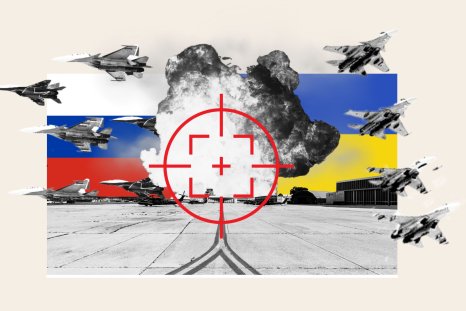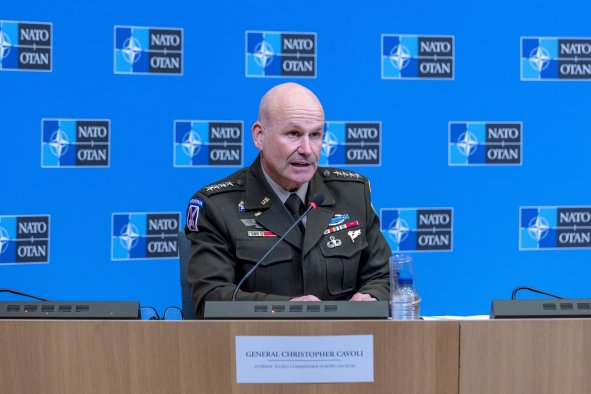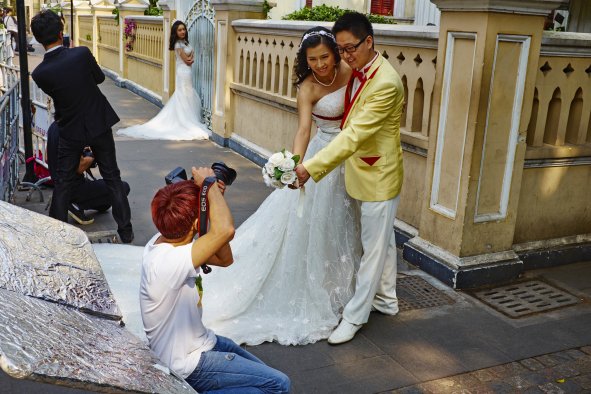Academics at China's Xiamen University in Fujian have outlined what they see as the path toward reshaping Taiwan in Beijing's image after a forced unification with the island democracy.
The authors also call for a "shadow government" to be organized beforehand to ensure "regime change" goes smoothly.
The document, which doesn't list the authors' names, has been shared online by the Washington, D.C.-based Center for Strategic and International Studies think tank after being pulled from Chinese social media, where it was first posted.
China claims sovereignty over Taiwan and has vowed to unite with it, by force if necessary, though Beijing's Chinese Communist Party government has never ruled on the island. In recent years China has dialed up military activity in waters near Taiwan to pressure its neighbor, including a series of major military drills launched after the inauguration of Taiwan's President Lai Ching-te in May.
The authors write that China's experience with Hong Kong showed the "one country, two systems" framework introduced to the former British colony would not suit Taiwan. This would have "little persuasive power," they note, because of the "disruption"—an apparent reference to the pro-democracy protests of 2019 and 2020 that were crushed by the special administrative zone's Beijing-approved government.
Likewise, the authors say it would be impractical to give Taiwan a 50-year adjustment period before it assimilates into the mainland, something it had promised Hong Kong in the Sino-British Joint Declaration signed before the handover.
The paper states the "comprehensive takeover of Taiwan" after unification is "urgent" and goes on to call for Chinese authorities to prepare a "shadow" Taiwan government that could hit the ground running to ensure a smooth transition.
In the meantime, a committee should be set up to focus on "post-takeover policies" spanning law, currency conversion, customs and integration of infrastructure on both sides of the Taiwan Strait. Committee members would familiarize themselves with the Taiwanese institutions they replace and draw up plans related to "screening" Taiwanese civil servants, teachers and members of the military.
The authors also recommend setting up "a highly realistic physical environment" in which to experiment with their policy ideas before putting them into practice in Taiwan.
Taiwanese "cadres who are familiar with the mainland" could be recruited to help advise Chinese planners on local norms to help shorten the "transition period," while pro-unification individuals already in Taiwan should also be made use of, the authors add.
The paper observes pro-unification sentiments have greatly weakened in Taiwan, adding that even the island's relatively Beijing-friendly opposition party, the Kuomintang, has been "softening and moving toward implicit Taiwan independence."
"The fact it says the KMT's moving toward 'implicit Taiwan independence' shows at least some self-awareness on the mainland's part that it has all but lost Taiwan," Sean King, Asia scholar and senior vice president of New York-based consultancy Park Strategies, told Newsweek.
"But the report wholly overlooks the anticipated upheaval that would precede any unification because Taiwan's populace would not go willingly," King added. He believes "nothing short of military action" would bring Taiwan into the fold and pointed out the Xiamen University authors did not even mention a potential postwar reconstruction.
Taiwanese would continue to "actively resent and seek to undermine any and all PRC rule over them. It would not be a happy union," he said.
China has threatened war in the event Taiwan declares official independence. President Lai maintains this is not necessary, as Taiwan is already independent. Polling in recent years shows more than three-quarters of Taiwanese support maintaining the status quo of de facto independence in the Taiwan Strait, either indefinitely or moving toward eventual de jure independence.
The Taiwanese and Chinese foreign ministries did not immediately respond to written requests for comment.
Disclaimer: The copyright of this article belongs to the original author. Reposting this article is solely for the purpose of information dissemination and does not constitute any investment advice. If there is any infringement, please contact us immediately. We will make corrections or deletions as necessary. Thank you.



